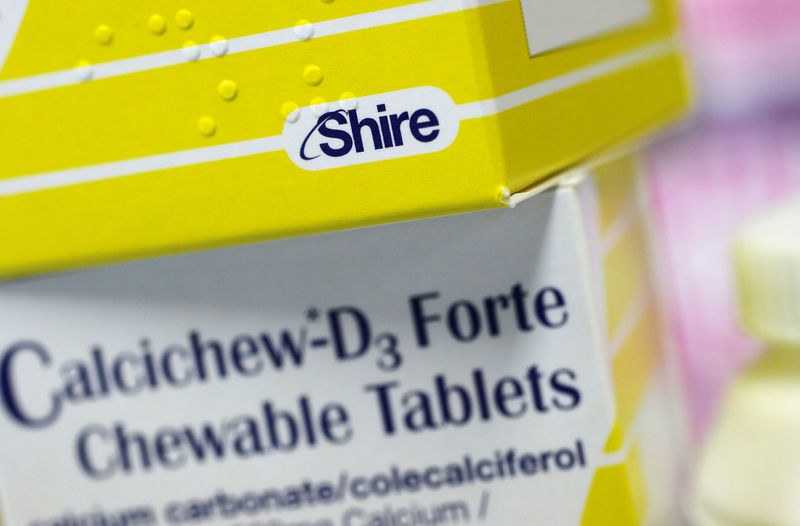By Paul Sandle
LONDON (Reuters) - Pharmaceutical group Shire (L:SHP), which bought haemophilia specialist Baxalta last year, reported a better-than-expected 14 percent rise in first-quarter earnings, helped by cost savings and higher sales of its rare disease drugs.
Shares in the London-listed company jumped 3 percent to the top of the FTSE 100 index on Tuesday as analysts said its cost controls had helped it beat forecasts by around 9 percent.
Chief Executive Flemming Ornskov said the year had started strongly, with growth across its portfolio from rare disease medicines to hyperactivity drugs, including blockbuster Vyvanse, which is still growing 11 years after launch.
He said the integration of Baxalta, which aims to achieve at least $700 million in cost savings by the third year, was ahead of schedule, although some of the progress on margins in the quarter were down to one-off benefits from the deal.
"(But) we are beginning to see some sustainable cost improvements being generated," he said.
Shire reported non-GAAP diluted earnings per ADS of $3.63, beating analyst forecasts of $3.27, according to Thomson Reuters I/B/E/S. Product sales, which were boosted by the Baxalta deal, surged 110 percent to $3.4 billion.
The company reiterated its full-year forecast given in February for product sales to rise to $14.5 billion-14.8 billion this year and earnings per share to increase to $14.60-$15.20.
Deutsche Bank (DE:DBKGn), which has a "buy" recommendation on Shire, said the results had reassured investors.
"Although guidance was only reiterated, this performance is encouraging given that the market expected a soft start to the year and Baxalta pro forma growth of 8 percent was solid," it said.
Shire is awaiting a decision from the U.S. regulator on its new long-acting hyperactivity drug.
"If approved we are very excited by the possibility of further expanding our leadership position in ADHD in the United States," Ornskov said.
Investors are also expecting the results of a clinical trial, due this quarter, of its new medicine to treat hereditary angioedema, a drug that analysts say could reach peak annual sales of around $2 billion.

Shire's shares have been trading at a steep discount to analysts' forward growth forecasts, analysts at Jefferies have said, in part due to concerns about competition in the haemophilia market, including the threat from a new investigational medicine being developed by Roche. Renewed political focus in the United States on drug prices has also hurt the share price.